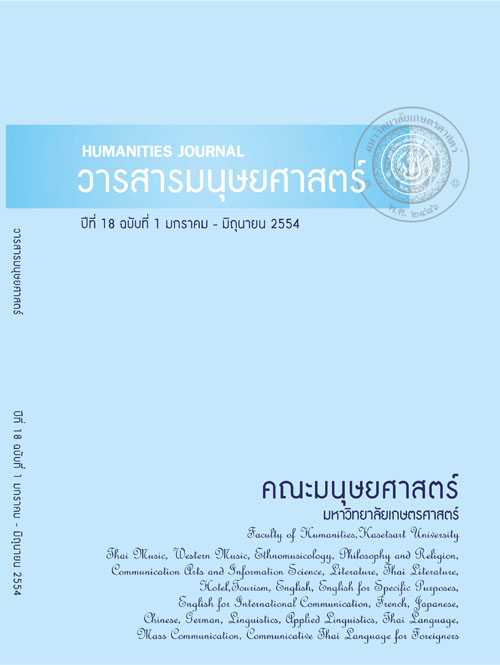A Study of Kasetsart University Students’ Comprehension of English Idioms Appearing in Editorial Columns in the Bangkok Post and the Nation
Main Article Content
Abstract
This qualitative study aimed to (a) investigate the common linguistic types of English idioms used in the editorial columns in the Bangkok Post and the Nation, (b) examine the Thai readers’ abilities and perceptions in their comprehension of English idioms, and (c) examine whether idiomatic expressions are the hindering factors for these Thai readers in their comprehension of English editorial texts. The 43 participants in this study were English-major students and non-major students. The instruments used in this study were a questionnaire, three reading comprehension tests, and a semi-structured interview. The descriptive and interpretative methods of content analysis (Berg, 2004; Coffey and Atkinson, 1996; Strauss and Corbin, 1983) have been employed to explore and analyze the data.
The findings revealed that, first, semantically, literal idiom was the most common type found (43%) in the editorial columns in the two English newspapers. Grammatically, phrasal verb idiom was mostly common found (40%). Second, findings regarding the students’ abilities and perceptions indicated that students were able to comprehend texts the best with literal idioms, the type with the most apparent meaning. In addition, regardless of the linguistic features, idioms were better comprehended when contexts were provided, especially when the language of the contexts included simple vocabulary and topics related to their background knowledge. The students also revealed that their comprehension of idioms was not directly connected with their awareness of the linguistic features of the idiomatic expressions. To conclude, idioms did not appear to hinder the students’ comprehension of the English editorial texts.


